We recently connected with Kenneth Lui and have shared our conversation below.
Kenneth, thanks for taking the time to share your stories with us today Can you share a story with us from back when you were an intern or apprentice? Maybe it’s a story that illustrates an important lesson you learned or maybe it’s a just a story that makes you laugh (or cry)?
I’m 19, looking to intern anywhere I can learn filmmaking and land at RSA in Los Angeles, Ridley Scott’s commercial and music video house. It meant that I got to hang around the client bays and see the storyboards for Gatorade ads featuring Michael Jordan, shadow editors cutting music videos for Tina Turner, Bush, and Elton John, pull books and images from the in-house library for mood pieces, and eat the occasional free meal after the directors and clients had their fill. It was a very educational experience because when you’re that young, everyone likes to take you aside and offer advice. I’d be on set and if someone was bored, they’d invariably ask my age and offer advice. It was nice. It was like having uncles and aunts just drop knowledge on you, whether if it was good advice or not. It was also great because it gave me permission to basically observe everyone from craft services to the director, my job was essentially to stand next to people and get them whatever they wanted. If there was a bookshelf to be put together, I did it. If production forgot to bring the greenscreen, I rushed to back for it. And everyone was kind enough to indulge my questions. How long does it take to edit a music video? So this whole set piece is made of foam? It was like a family. When the question of how these experiences influenced my own leadership style I think of one instance when I was on the set of a commercial, we were on location at the Mayan Theater and the AD was very forceful in his orders, barking at everyone. He took charge of everything and it felt we were in a time crunch, but what stood out to me was his tone, which was loud but not in an off-putting way. It was a small dark set depicting the radar room in a submarine and it was very hard to hear each other, so he pulled me aside like a soldier, barked out “I need this here and this here, capice?” His tone conveyed nothing personal, just wanting to get the job done and done right and my part was important. After the set was ready, I walked out, ate crafty and chatted with the actors who I recognized from their other work because I’m a big nerd. But watching that AD always stuck with me and made me want to cultivate a voice like that. Direct and inspiring without malice.
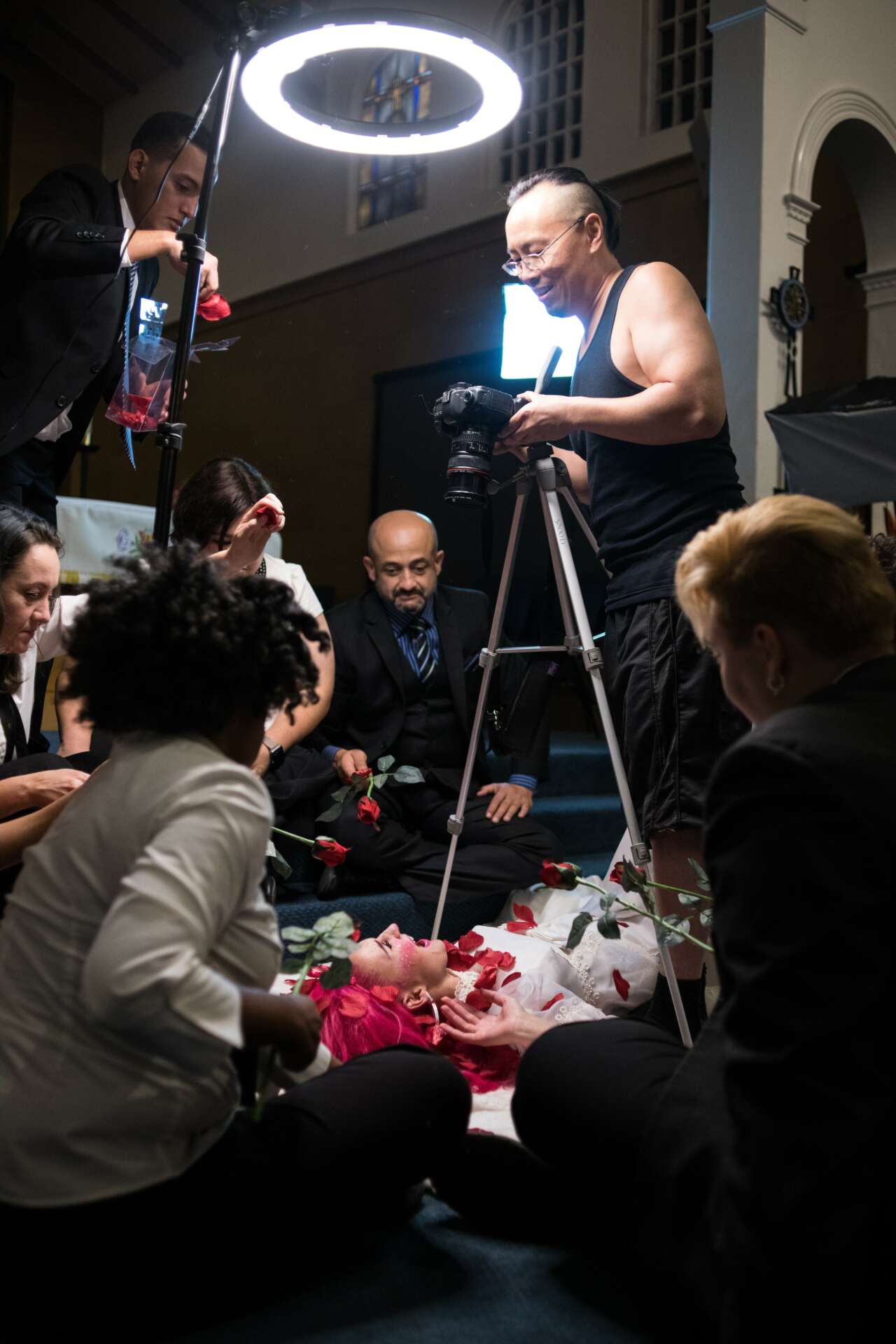
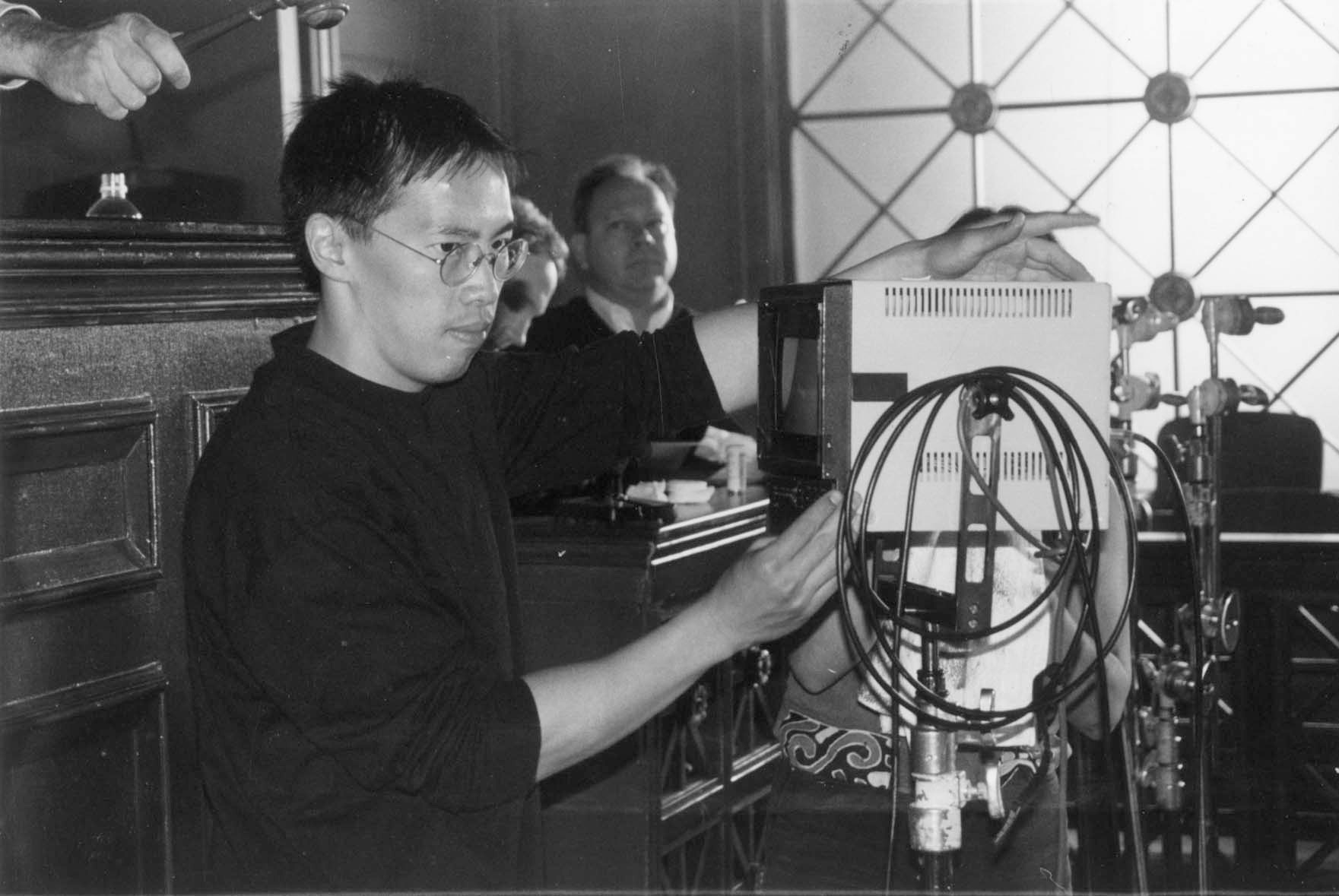

Awesome – so before we get into the rest of our questions, can you briefly introduce yourself to our readers.
I’m a filmmaker based in Los Angeles. Graduated from Art Center College of Design where I finished my first major short film FALSEHOOD, about the Big Bad Wolf on trial for crimes against Red Riding Hood, which won numerous awards and went to the Cannes Film Festival. Just finished my first feature film soon to be released on streaming. I’m also a visual effects artist that worked on various feature films for Marvel and DC.
How I got into the industry: through friends and doing good work. When you do good work, friends can put in a word for you when good work is needed, it’s that simple. Getting good friends is by being a good friend, and doing good work is a practice. (Even if at times in the process you don’t THINK it’s good, Hemingway famously said “Don’t get it right, get it written.”
It’s really how anyone gets started in the arts in my opinion. Do good work, don’t be a jerk. I write and direct short films and features for myself and conceptualize and shoot commercials and music videos for clients. I help my clients visualize what they want and help them execute those ideas on film.
What sets me apart from others: my unique experience. I’ve always been into film and art since I was a child, and I’m trained in art, music, and writing, so my clients get the benefit of me being a one-stop-shop. My heroes are the visualists that can do it all, James Cameron, John Carpenter, Sam Raimi, Ridley Scott.
What I’m most proud of: My first feature film ARTISTS IN AGONY: Hitmen at the Coda Teahouse was a mockumentary passion project about assassins that was filmed over a 9 year period. While working full time as a VFX artist, I took some of that money and whatever left-over time I had to that project. I bought a Canon 60D, borrowed 2 lenses and bothered every actor friend and their friend to be in it as a crazy assassin or victim. The result was a wacky satire on fandom and violence. I had written the framework for the story but let the actors dictate the scenes through improv, something I’d always wanted to do. Always a big fan of Mel Brooks, Zucker Brothers, and Christopher Guest so to do something in that vein with my own cinéma vérité style where I also got to be IN the filmic universe as the cameraman, AND have a death scene, was a dream come true. So I got to cross THAT off my bucket list.
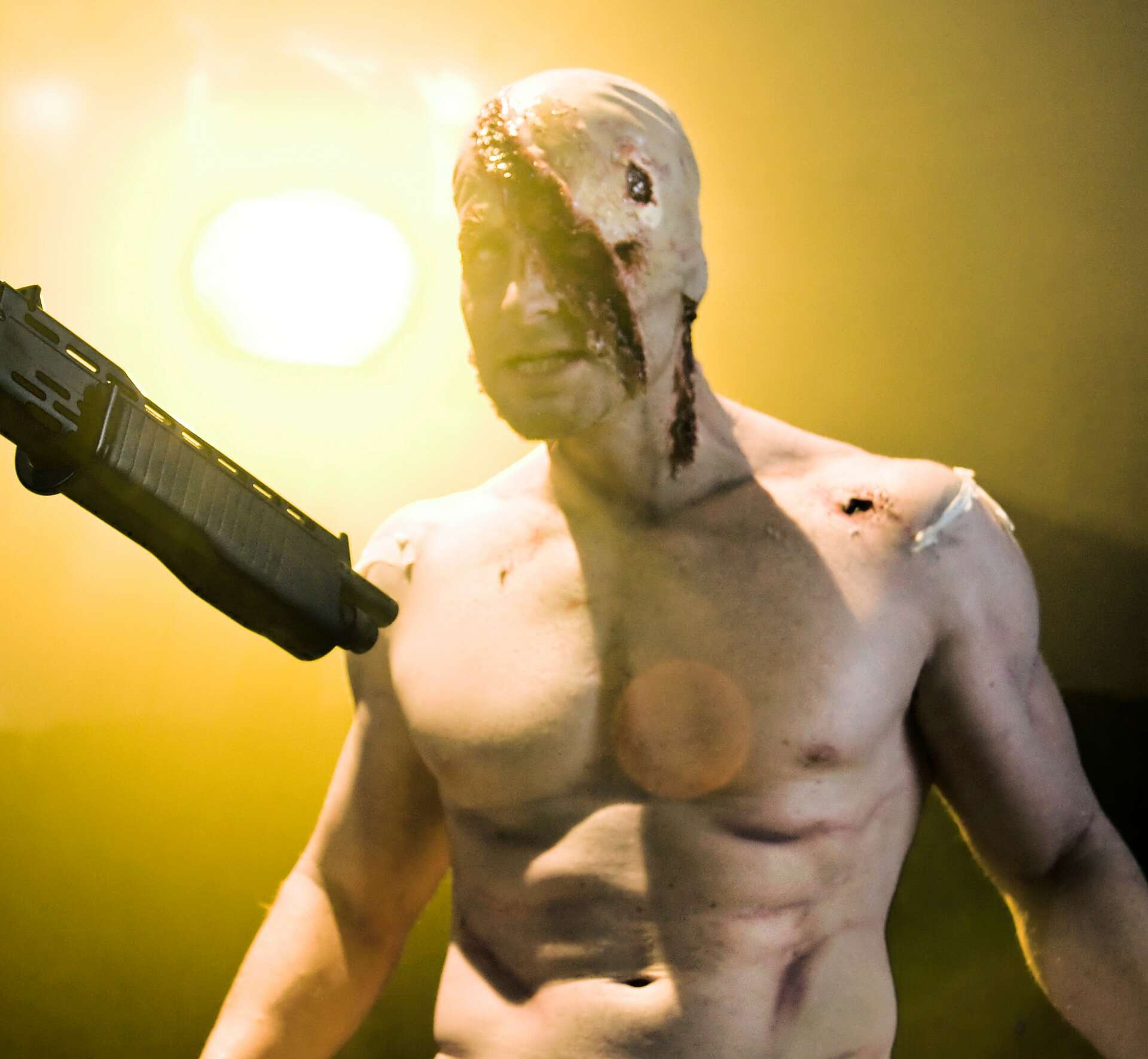
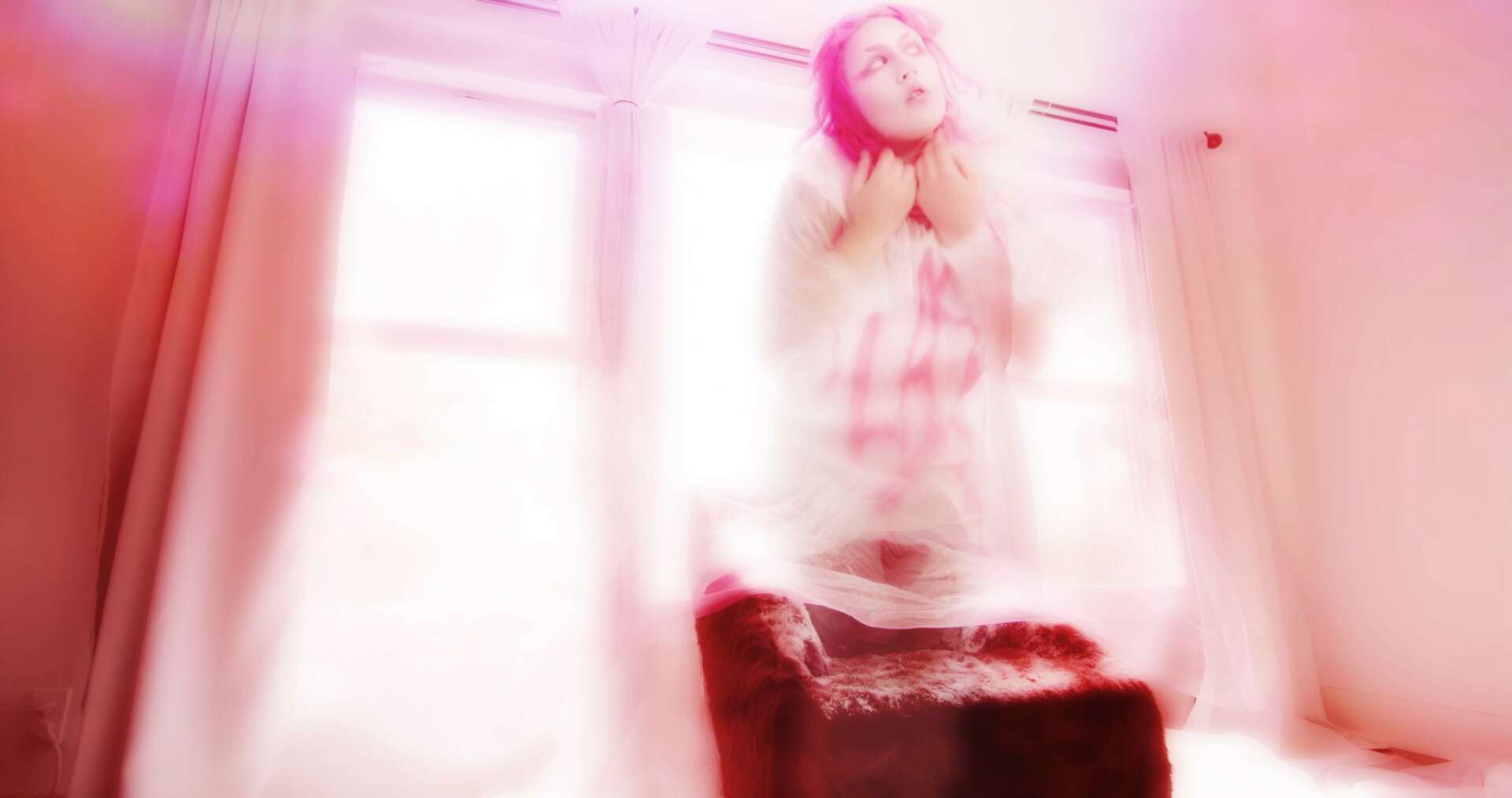
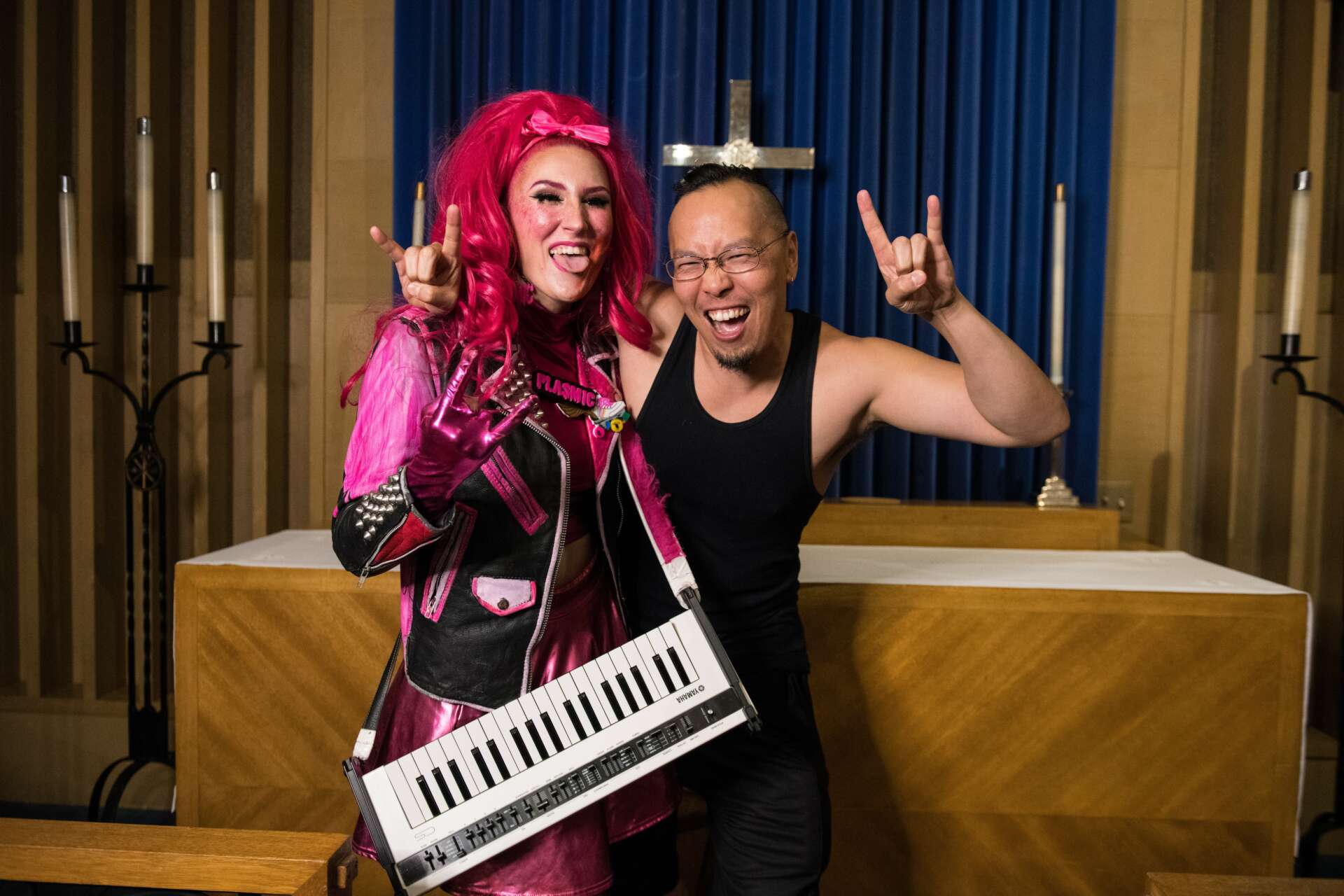
We’d love to hear a story of resilience from your journey.
I was working full time as a visual effects artist working on feature films and commercials. Privately I was writing a lot at the time and after a few years finishing numerous scripts, I was really getting restless to shoot my own films. I finally got sick of writing movies and not shooting movies so I decided it was time to just start shooting SOMETHING, so I wrote a little 10 min short, CIRCLE JERKS, about a guy with insomnia who gets into a conversation with various aspects of his personality. It was a modest short that showcased my buddy Bill and his acting chops. This was during the time when digital photography was on the cusp of becoming more affordable and more accepted. So I shot a couple more short films just to keep my directing chops flowing. This garnered a few awards for myself and my actors which was very encouraging. I “started starting again” which led to finishing. That was the key, starting and letting myself feel weird and keep going. My measure of success wasn’t tethered to the results, it was tethered to the work and as long as it was something new to me, whether it was a new piece of equipment, new program, new technique, it was a success because it wasn’t just the film I was making, it was the filmMAKER. If someone was criticizing one short, it didn’t matter because my emotions were with the next short. While I was finishing my latest short film WHITE WOLF: Zombie Killer, a friend of mine was going through a bad break-up. So me and my co-producer/wife went to go cheer him up when he said “I’d love to be in one of your film projects where I get to shoot at bad guys.” it sparked an idea for a project that I’ve always wanted to do and that became my first feature film ARTISTS IN AGONY: Hitmen at the Coda Teahouse. This project would enlist all our friends and family and made new friends. It was a broad enough idea to encompass everyone’s creativity because it would be an improv project, but only I knew the eventual outcome, it was a very exciting idea to me, and it would take forever, but I wasn’t sure if the idea would work as an improv piece in the vein of something like “This is Spinal Tap”, so I’d have to do tests. I tapped the best actors I knew who would be willing to let me shoot them because something like this really needs the actors to pull it off. The tests gave me confidence that the idea would work and I showed the main cast each other’s “experiments”. I told them if I could get them to commit to helping me shoot a handful of scenes like this we could have a feature. What I didn’t expect was that the footage that we got would inspire a bigger story that required more audacious and complex scenes. (in one instance I was asking for a SWAT team sequence) It was only because the quality of the acting kept upping the ante which made the production take longer. If actors became unavailable we killed them off. If I happened to meet a fantastic actor at a party, I could enlist them for a few scenes. It was such a versatile show, I don’t think I’ll ever have that kind of creative freedom again. The problem was time. In the “iron triangle” there’s 3 aspects: fast, cheap, good. Our project was CHEAP, my actor friends believed in the project so their time was donated, we shot in cars, apartments, and every corner of my mom’s house, the performances were also GOOD, therefore production couldn’t be FAST, everyone was working on this in their spare time, including myself. Though it was taking years to create, I couldn’t shake how good everyone’s work was and refused to stop filming until I felt there was enough quality there to complete the story arcs and have something I would be proud say was “A Kenneth Lui Film”. Once I saw how I could tie everything up, I asked the main cast for one more day where I could get them together and kill off all their characters in a big shoot out, they agreed. I simply wouldn’t quit on the project and fortunately, the main cast wouldn’t quit either, so I got shoot wonderful death scenes for their characters in the finale. Not sure if it taking 9 years is embarrassing or a testament to my resilience. We finished the movie, won numerous awards for myself and the cast. Soon it’ll be streaming with my buddy who wanted to be shooting bad guys. Now that’s all finished, I’m back to writing something new. When I’m writing, I wish I was shooting, and when I’m shooting, I wish I was writing. I guess the lesson is no matter what phase you’re in, always start starting until you’re finished…so you can start again. Use the tools you have. Be unstoppable. Like Bruce Lee said, “Be formless, shapeless….Flowing water never grows stale.”
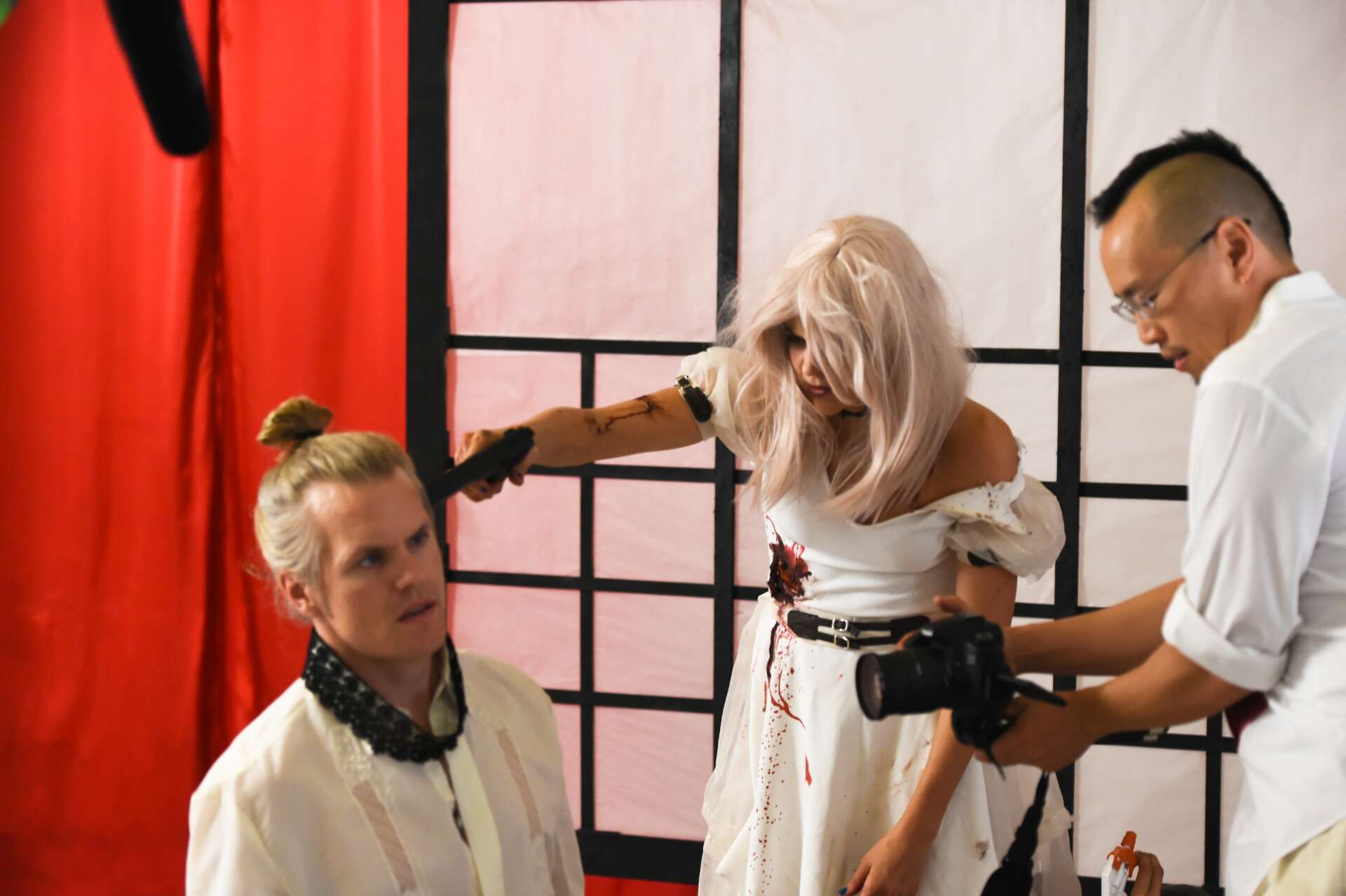
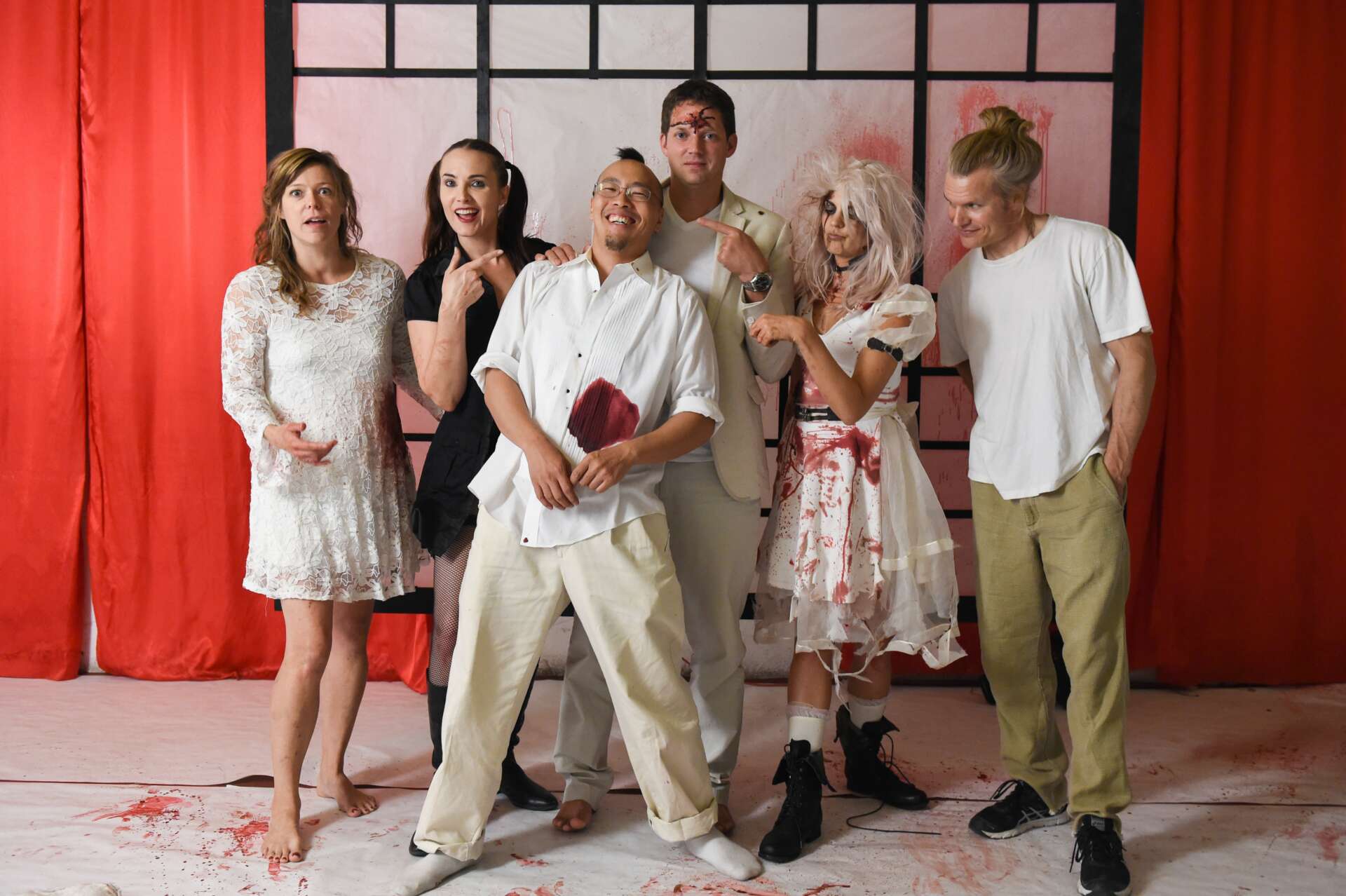
For you, what’s the most rewarding aspect of being a creative?
For me the most rewarding aspect of being an artist/creative is the friends you make. Two things happen when I endeavor to create a project: 1. I grow. I get to learn new tricks and discover something new about myself. For example after shooting my zombie short film I realized the core of the story was about “fatherhood” and my feelings about it. 2. I make friends. Film is such a collaborative medium, it takes an entire family of talents to make it happen. I love enlisting collaborators because when someone who’s work I respect, understands and interprets their version of my idea, it makes me feel “seen” and I get a rush when I see my idea interpreted through their craft because I get to see something new in something familiar to me.
Contact Info:
- Website: https://www.kennethlui.com/
- Instagram: https://www.instagram.com/acrazymaker/
- Facebook: https://www.facebook.com/MentalPicturesProductions/
- Youtube: https://www.youtube.com/channel/UC-clcGT1l-8X9MYda-RCDhw
Image Credits
Temma Hankin


